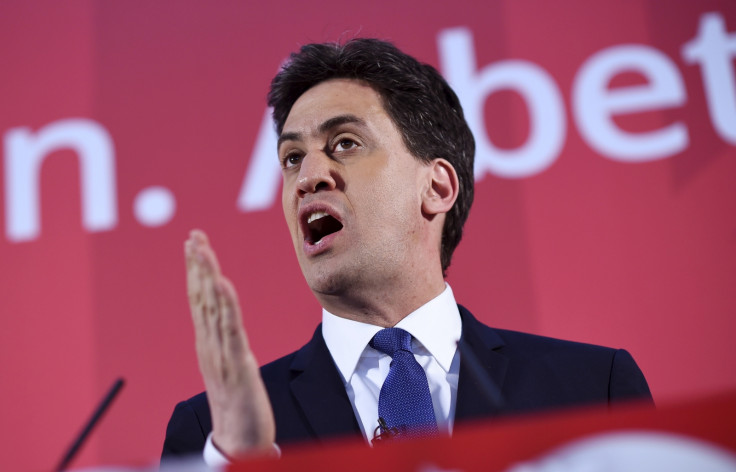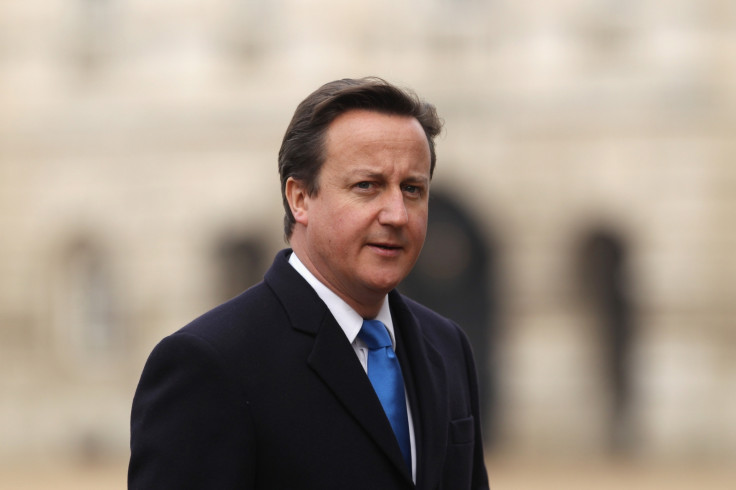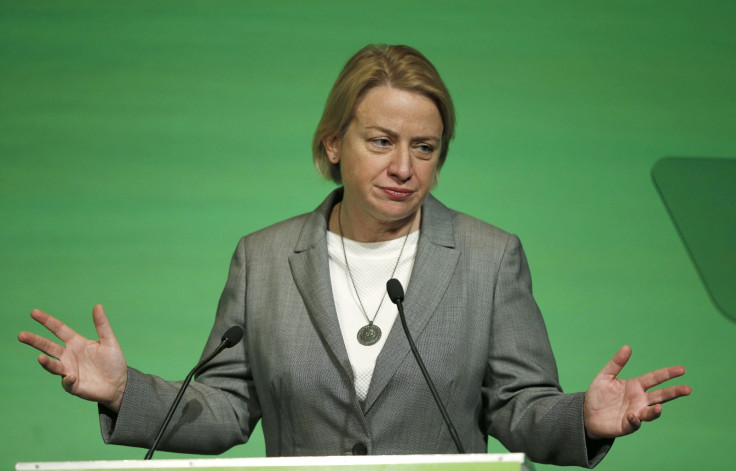Election 2015: Which parties score best on LGBT rights?

Politicians have done their upmost to cast their parties as progressive in the final weeks of the election campaign, to appeal to the 3.8 million lesbian, gay, bisexual and transgender voters in the UK.
Ahead of what is set to be one of the closest elections in years, Labour, the Liberal Democrats and the Green party have all released LGBT-focused election manifestos. Meanwhile, David Cameron has promised to take a tough stance against reparative "gay cure" therapies – while reminding the electorate of the legalisation of same-sex marriage under his government.
From compulsory LGBT sex and relationships education to tackling discrimination and hate crime, we look at how each party stacks up on LGBT rights.
Conservatives
The party have not released a separate LGBT manifesto, but have included a comprehensive list of LGBT-related pledges in their 2015 manifesto. In a relative U-turn on the party's chequered history on gay rights, the Conservatives have built on their legalisation of marriage in 2013 – which helped the party neutralise the legacy of Margaret Thatcher's reign.
The Conservatives have committed £2m ($3.04m) to finding "innovative" ways of tackling homophobic, bi-phobic and transphobic bullying in schools and have committed to LGBT-inclusive sex and relationships education.
Following a petition calling for the 49,000 men convicted under historic anti-gay laws to be pardoned, the Tories have also pledged new legislation to pardon convicted men posthumously. To tackle LGBT hate crime, the party say they will "toughen sentencing and use new technology to protect the public" – and review legislation governing such crimes.
Cameron's party have pledged a Transgender Action Plan to tackle transphobic abuse, provide better guidance on pension entitlements and the implications of gender assessment for tax purposes and support transgender job seekers.

Labour
Labour's LGBT manifesto has pledged to address five important LGBT issues. To tackle discrimination, the party have said they will strengthen law on LGBT hate crime, undertake a review of gender identity law and policy, restore the Equality Act and implement "Turing's Law" - offering posthumous pardons to gay men convicted for homosexuality.
Ed Miliband's party have pledged to equip teachers with the training and resources to tackle LGBT bullying, while introducing age-appropriate compulsory sex and relationships education in all state schools. Stonewall recently spoke to IBTimes UK about the importance of compulsory sex education, which you can read here.
In terms of health, Labour have pledged to improve access to mental health treatment and to work among the trans community to improve access to gender care services and tackle HIV/Aids.
Labour have also pledged to appoint the UK's first international envoy on LGBT rights to promote rights globally, and review the procedures for asylum seekers fleeing persecution for their sexuality or gender identity. The party have also said they will work to improve LGBT representation in Parliament.
Liberal Democrats
The Lib Dems have pledged support to build on the legalisation of same-sex marriage, which was approved by the coalition in 2013. To continue moving towards equality, the party want to introduce mixed-sex civil partnerships and promote EU-wide recognition of same-sex marriage and civil partnerships.
Along the same lines as the Conservatives, the Lib Dems want to end "gay conversion therapy" but also want to extend the existing NHS Memorandum of Understanding to cover trans people. This is part of a focus on trans rights, ensuring inclusive sexualities in advertising, media, sport and politics.
Nick Clegg's party want to ban homophobic chanting at sports matches as well as tackle bullying in schools, by introducing compulsory same-sex relationships education. The Lib Dems also want to end the deportation of LGBT people to countries where they face persecution and introduce "X" gender markers on passports.

Green party
Under Natalie Bennett's leadership, the Greens have outlined a LGBT manifesto which covers areas including housing, education, employment and health.
The party pledge to legislate to remedy inequality in pension inheritance for same-sex marriage partners and same-sex civil partners, while pardoning all men convicted of consenting adult same-sex relations under anti-gay laws that have now been repealed.
Bennett's party want every school to have an anti-bullying programme that explicitly combats homophobic, bi-phobic and transphobic bullying, and want to implement mandatory age-appropriate sex and relationship education from primary level onwards.
In terms of health, the Greens also want to consider reducing the 12-month blood donation deferral period for men who have sex with men, based on individual risk assessment where the donor is identified to be not at risk of passing infections into the blood supply. The party want to improve HIV services on the NHS and make access to gender reassignment services easier.
To tackle discrimination, the Greens want to ensure uniform legislation against all forms of hate crime. The party wants to press the Commonwealth to grant accredited status to a Commonwealth LGBT Association and urge all member states to end the criminalisation of homosexuality and protect against discrimination and hate crime.
Ukip
Unlike the other parties, the UK Independence Party failed to weigh in on a single LGBT rights issue in their manifesto. However, the party did publish a "Christian manifesto" which opposes same-sex marriage legislation although they would not seek to reverse it.
The party have also outlined their opposition to inclusive, age-appropriate relationships education for primary school pupils, stating they would "encourage experimentation". They failed to mention trans rights in their manifesto.
Ukip have also faced a string of embarrassing gaffes. Earlier this month, the party's Yorkshire regional secretary Peter Morgan admitted to a Leeds University student that he didn't know what the term "LGBT" meant, prompting ridicule on social media.

Scottish National Party
Nicola Sturgeon's party have pledged to support the creation of an LGBT rights envoy within the UK Foreign Office to "promote the rights of LGBT people throughout the world, as an integral part of UK foreign policy".
The party also hinted at further laws to protect LGBT people, saying they "will seek to maintain the protections provided by the Equality Act 2010".
However, the manifesto failed to mentioned some of the LGBT issues raised by other parties, such as statutory sex and relationships education in schools. Although education is a devolved matter in Scotland, the manifesto did specify other education policies. The SNP have also kept quiet on proposals to pardon men convicted of historic same-sex offences.
Plaid Cymru
Plaid Cymru, led by Leanne Wood, have pledged their support for a number of LGBT issues, including full marriage equality and ending discrimination on blood donation. The party have pledged to ensure all schools and local authorities record incidents of homophobic bullying and to tackle the problem by providing better support and training to teachers.
The party also want to provide support to tackle isolation among LGBT people and to toughen sentencing on homophobic, bi-phobic and transphobic hate crime, working closely with police to ensure incidents are recorded.
Plaid Cymru want to implement a framework for Primary Care Service for Trans and Intersex people and support the development of a Gender Identity Clinic in Wales.
Democratic Unionist Party
Northern Ireland's DUP also failed to mention any LGBT rights issues in their manifesto. The party recently came under fire for their "conscience clause" bill, which could essentially permit anti-gay discrimination.
In February, DUP minister Paul Givan tabled a bill in the Northern Ireland Assembly that would effectively exempt people with "strongly held" religious convictions from equality laws – allowing them to discriminate against LGBT people.
The DUP also oppose gay marriage and uphold a ban on the donation of blood by gay men in Northern Ireland. In April, Health Minister Jim Wells stepped down from his position after claiming children brought up by gay parents were more likely to be abused.
© Copyright IBTimes 2025. All rights reserved.






















